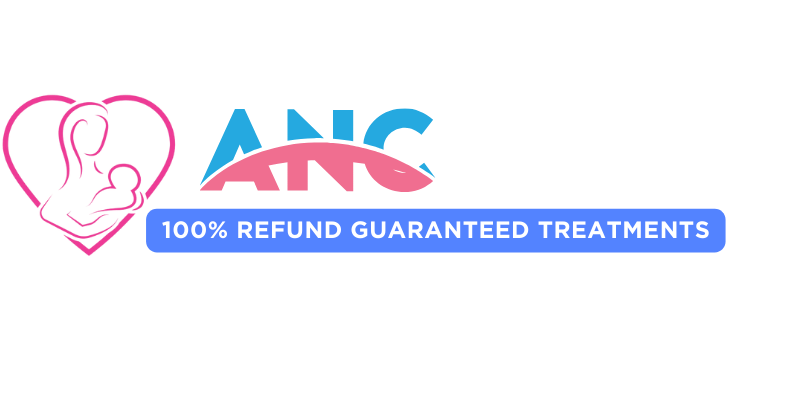Welcome to our comprehensive guide on sperm donation treatment, a beacon of hope for countless individuals and couples longing to start or grow their families. As the path to parenthood becomes more multifaceted with each passing day, understanding the ins and outs of sperm donation is pivotal for those considering this life-changing option. Our in-depth post will explore everything from the underlying principles behind sperm donation to the meticulous selection process donors undergo. We’ll provide a clear depiction of the donation procedure itself and discuss how this act of generosity assists recipients on their profound journey to parenthood. Whether you’re contemplating becoming a donor or you’re on the search for your missing piece to family fulfillment, join us as we navigate the intricate and rewarding world of sperm donation treatment.Explore sperm donation: eligibility criteria, what to anticipate during the donation process, and how it facilitates the path to becoming a parent.
Understanding Sperm Donation: An Overview
Sperm donation is a topic surrounded by both medical significance and societal contributions, serving as a lighthouse of hope for numerous couples and individuals desiring to conceive a child when facing infertility issues or genetic concerns. This charitable act involves a man donating his sperm through a sperm bank or fertility clinic, where it is stored and used for artificial insemination or other fertility treatments in third-party reproduction. The altruistic nature of this gesture not only permeates the walls of fertility clinics but also resonates deeply with those who yearn to experience parenthood but are hindered by various biological barriers.
Individuals or couples considering sperm donation as a route to parenthood are often greeted with an intricate framework designed to ensure the safety and compatibility of the procedure. The process includes an exhaustive screening of potential donors, which scrutinizes their medical history, physical attributes, genetic makeup, and psychological health to maintain the highest standards of reproductive assistance. Qualifying for sperm donation is a meticulous venture, reflecting the grave responsibility bestowed upon these unsung heroes, whose contribution may culminate in the creation of life and the happiness of a family.
Embarking on the journey of sperm donation marks the commencement of a hopeful passage towards the achievement of parental dreams, painting a future where love and science coalesce to overcome the trials of infertility. It is a passage that promises the continuation of family legacies, the realization of unfulfilled longings, and the existence of progeny who, under different circumstances, might never have come to be. The actual donation process is cloaked in professionalism and confidentiality, ensuring a respectable and dignified progression for all parties involved, as they navigate the precious and transformative expedition leading to the gift of life.
Qualifying for Sperm Donation: The Selection Process
Qualifying for sperm donation is often a rigorous ordeal, encompassing a multitude of medical evaluations and psychological assessments aimed at determining the suitability of potential donors. While the idea of donating sperm may appear straightforward to some, the reality is that clinics and sperm banks uphold stringent criteria to ensure that the donors they select are capable of providing healthy, viable specimens. The journey to become a sperm donor begins with an exhaustive screening process, whereby applicants must exhibit not only superior physical health but also a remarkable genetic history, free of any inheritable conditions that could be passed on to potential offspring.
Furthermore, the selection process for sperm donation frequently includes thorough interviews addressing lifestyle choices and personal behaviors, as these factors can significantly impact sperm quality. Prospective donors must be prepared to engage in honest dialogues regarding their medical history, sexual health, and even their educational background and hobbies; such detailed inquiries are vital in constructing a comprehensive donor profile that potential parents can consult when making their decision.
Lastly, it is paramount for candidates to understand that the process of qualifying for sperm donation extends beyond initial acceptance. Even after being deemed eligible, donors must remain committed to maintaining a sound state of health and adhering to specific guidelines concerning their well-being, as ongoing evaluations are commonplace to guarantee the caliber of donated sperm remains consistently high. In sum, the selection process for sperm donation is designed to be meticulously thorough, safeguarding the interests of all parties involved and aspiring towards the overall aim of successful conception and the promise of new life.
The Donation Process: What to Expect
Embarking on the journey of sperm donation is a decision that carries profound significance not only for the donors themselves but also for the potential recipient families aching to fulfill their dream of parenthood. As individuals consider taking this altruistic step, familiarizing themselves with every facet of what the donation process entails becomes a crucial aspect of the pre-donation journey. The process is meticulously designed to ensure safety, confidentiality, and the highest standards of medical practice.
Firstly, prospective donors undergo a thorough screening which includes a detailed medical history review, genetic testing, and psychological evaluations to ascertain suitability for the program. Ensuring the health and viability of the sperm donation is of paramount importance; thus, candidates are subject to stringent criteria, which serve to protect the well-being of both the donor and the prospective offspring. Furthermore, the evaluation process serves to provide education and counselling for donors, granting them a comprehensive understanding of the implications and responsibilities inherent in their generous act.
Once accepted into the sperm donation program, donors must commit to a schedule that typically entails frequent visits to the donation facility over a span of several months. During these visits, donors provide their specimens in a private, comfortable, and discreet environment, adhering to professional medical protocols. It is essential for donors to comprehend the gravity of their commitment as they become integral contributors to a process that has the miraculous potential to bestow the gift of life and help shape the future of families for generations to come.
Sperm Donation: The Journey to Parenthood
Embarking on the journey to parenthood can be a path filled with diverse challenges and choices, and for many, sperm donation represents a beacon of hope that illuminates the road to fulfilling the dream of starting a family. The process, perceived as a compassionate act of giving, entails meticulously selecting a sperm donor whose generous contribution could support couples or individuals in overcoming obstacles related to infertility or genetic concerns. It is a delicate voyage that intertwines the essence of science, emotion, and the profound desire to nurture new life.
Prospective parents leaning towards sperm donation must embrace a profound selection process—the careful contemplation of a donor’s genetic history, physical attributes, and even personality traits—factors that will inherently stitch into the rich tapestry of their future child’s identity. A harmonious alignment of expectations, legal considerations, and ethical implications form the cornerstone of this important step, functioning as the framework within which the magic of creation will delicately unfold. As recipients navigate through these intricacies, they are guided by professionals committed to ensuring a sense of clarity and confidence in their choice.
The donation process itself is structured with an emphasis on anonymity and discretion, with fertility clinics acting as the custodians of confidentiality. Prospective parents may never know the donor, but they will forever be connected through the selfless gesture that culminated in life—a silent symphony where only the outcome reverberates through the corridors of time. As soon as the decision crystallizes into action, and the sperm donation has successfully commenced, hope transforms into a tangible reality, and soon, the echoes of a child’s laughter may very well fill the vastness of a loving home, concluding one journey and beginning another—as parents.

